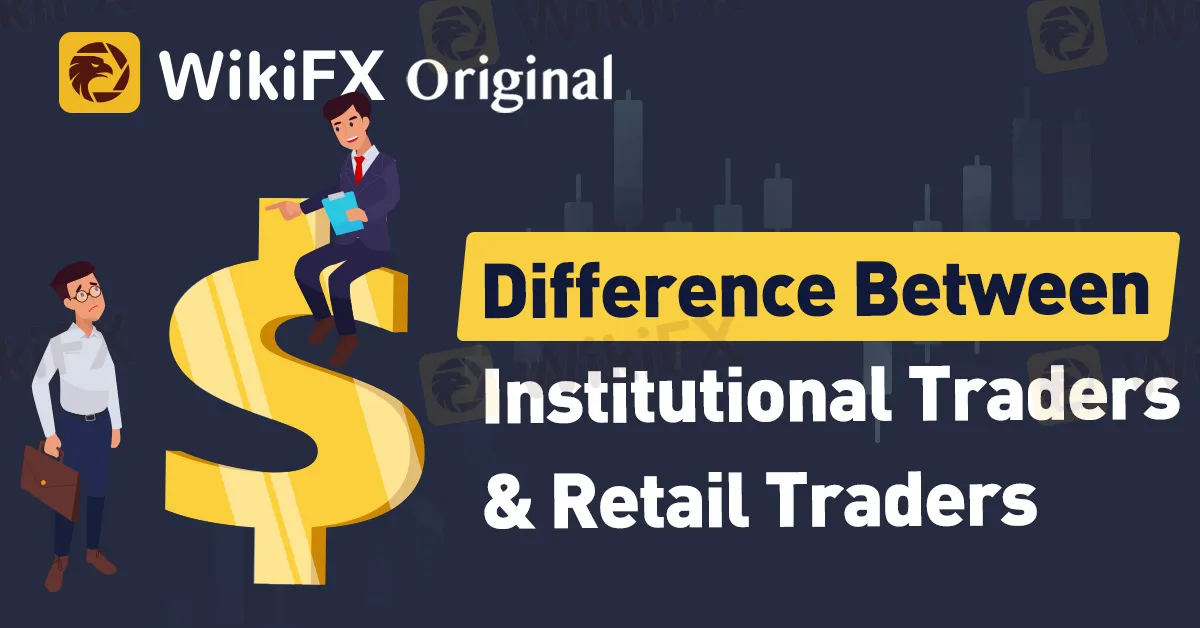简体中文
繁體中文
English
Pусский
日本語
ภาษาไทย
Tiếng Việt
Bahasa Indonesia
Español
हिन्दी
Filippiiniläinen
Français
Deutsch
Português
Türkçe
한국어
العربية
Difference Between Institutional Traders & Retail Traders
Abstract:The article explores the differences between institutional traders and retail traders, highlighting their unique advantages, access to securities, and potential paths of transition between the two.

The world of securities trading encompasses a spectrum of approaches, from the simplicity of retail trading to the complexities of institutional trading. Retail traders, often individuals, engage in personal securities transactions, while institutional traders manage accounts for groups or institutions such as pension funds, mutual fund families, insurance companies, and ETFs.
Although advancements in technology and access to information have narrowed the advantages once held by institutional traders, certain distinctions remain. Institutional traders still enjoy access to a wider range of securities, the ability to negotiate fees, and assurances of best price and execution.

Institutional traders can delve into complex transactions like forwards and swaps that are typically beyond the reach of retail traders. Moreover, institutions are often presented with investment opportunities in IPOs and can negotiate basis point fees while avoiding marketing or distribution expenses.
Given their substantial trading volume, institutional traders possess the power to significantly impact the share price of a security. To mitigate this influence, they may split trades among various brokers or execute them over time.
The size of an institutional fund influences the market capitalization of the securities it owns, with larger funds generally favoring higher-cap stocks. Smaller-cap stocks pose challenges for institutional traders as their investment might result in majority ownership or reduced liquidity due to limited counterparty participation.

Retail traders primarily engage in stocks, bonds, options, and futures, with limited access to IPOs. They typically trade in round lots, although the flexibility to trade any number of shares exists. Retail traders may encounter higher trading costs if they utilize brokers with flat fees per trade along with marketing and distribution expenses. Given the relatively smaller number of shares they trade, retail traders have minimal impact on security prices.
Unlike institutional traders, retail traders are more inclined to invest in small-cap stocks due to their affordability, facilitating diversified portfolios comprising multiple securities.
Interestingly, retail traders often transition into institutional traders. Starting with personal trading accounts, successful retail traders may expand their scope to include trades for friends and family. Continued success and the accumulation of capital from other investors can lead to the establishment of a small investment fund, paving the way for the transformation into institutional traders.
While institutional traders and retail traders have distinct characteristics, their paths can intertwine as retail traders progress towards managing institutional-level portfolios, exemplifying the evolutionary nature of the trading landscape.

Disclaimer:
The views in this article only represent the author's personal views, and do not constitute investment advice on this platform. This platform does not guarantee the accuracy, completeness and timeliness of the information in the article, and will not be liable for any loss caused by the use of or reliance on the information in the article.
Read more

The impact of the U.S. presidential elections on gold and Forex prices
Analysis of the impact of the 2024 U.S. presidential election on gold prices and the forex market, with a focus on U.S. dollar movements and its relationship to safe-haven assets during periods of economic uncertainty.

Broker Review: Is Sure FX Reliable?
Sure FX, a Colombian-based forex and commodities broker, was founded in 2019 to provide traders with access to global markets, specifically in Forex and commodities.

Indonesian Woman Lured into S$1.3 Million Forex Scam by Friend
An Indonesian woman residing in Singapore has fallen victim to a forex investment scam, resulting in a personal loss of more than S$1.3 million (RM4.28 million). She was introduced to the fraudulent scheme by a friend, who encouraged her to invest in a forex company in Indonesia with promises of high returns and future business opportunities.

6 Trading Platforms That May Put Your Money at Risk
Consob has banned six fraudulent trading platforms. Learn how to protect your investments and avoid scams with essential safety tips.
WikiFX Broker
Latest News
XM - Featured Broker in WikiFX SkyLine Guide
BUX and PrimaryBid Partnership Opens IPO Access for EU Retail Investors
Plus500 Users Count Surges to 121K with Average Deposits Reaching $6,150
Coinbase Launches Tool to Simplify AI Agent Creation for Crypto Tasks
Illegal Bitcoin Mining Is Draining Millions from Malaysia’s National Company
Angel One is an Ideal choice for you ?
StoneX Group Strengthens Indian Presence with Bullion Exchange Membership & New Offices
Indonesian Woman Lured into S$1.3 Million Forex Scam by Friend
6 Trading Platforms That May Put Your Money at Risk
FCA fines personnel £350,000 for failing to notify the FCA of significant tax issues
Currency Calculator


